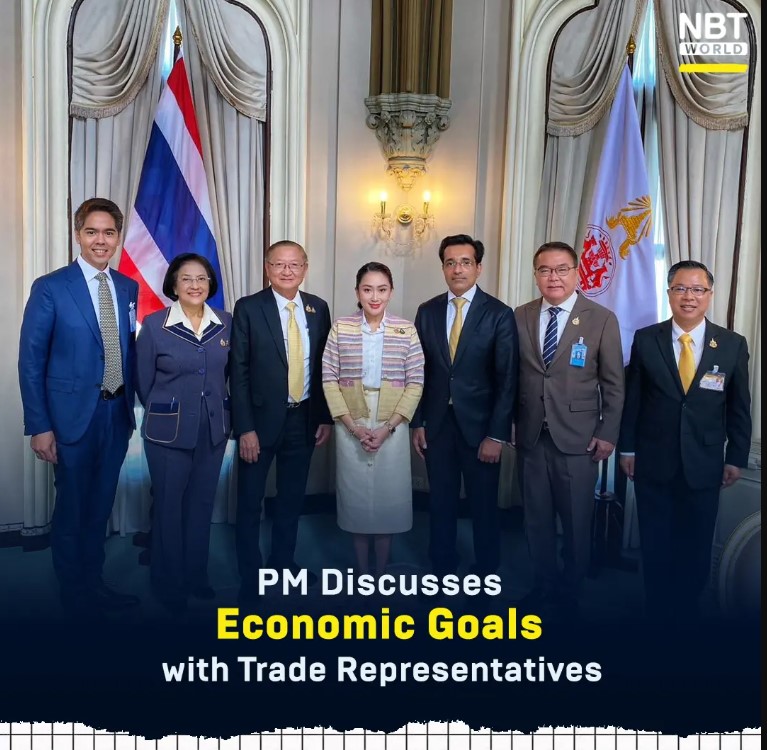Bangkok, September 10, 2023 – The Ministry of Commerce of Thailand is advocating for the adoption of various creative economy policies from around the world to drive the Thai creative economy.
Mr. Poonpong Naiyanapakorn, the Director-General of the Office of Trade Policy and Strategy (OTPS) under the Ministry of Commerce, revealed that the creative economy, which intertwines creativity, intellectual property, knowledge, and technology, has played an increasingly significant role in the country’s development. According to UNESCO, in 2019, the global creative economy had a value of $3.891 trillion, accounting for 3.1% of the global GDP, doubling from 2005. It also provided employment for approximately 6.2% of the global workforce. The creative economy supports various Sustainable Development Goals (SDGs), including poverty eradication, economic growth and decent work, infrastructure, innovation, and industry.
Countries worldwide recognize the importance of the creative economy in fostering economic, social, and political development. Consequently, they have devised distinct strategies to promote and enhance it. Many nations have formulated clear strategies and policies, established supporting organizations, and implemented financial measures and legal frameworks to adapt and drive their creative economies.
Currently, several countries serve as models for effective creative economy policies. Australia, for instance, has its “Creative Australia” policy, which supports funding, benefits, and collaboration with artists, entrepreneurs, and arts organizations. In Queenslands, Creative Together aims to develop cultural and culture-related businesses in the country. Scotland has the “Creative Industries Skills Investment Plan,” which addresses industry-specific challenges and needs in various regions. Ireland has the “Creative Ireland Programme,” designed to connect culture-related activities with creative thinking, focusing on youth, communities, and the nation’s creative reputation.
Some countries have even established organizations dedicated to supporting the creative economy. For instance, the United States founded the National Endowment for the Arts (NEA), which supports creativity and development for everyone in the country to benefit from arts and culture. Indonesia established the Creative Economy Agency to coordinate and develop policies that leverage the nation’s diverse potential to drive economic growth in the digital age.
Furthermore, countries have implemented financial incentives. The United States, for example, has copyright laws that legally protect the rights of creators for a lifetime plus 70 years after their death. Australia has tax policies that support film and television production and provide tax deductions for art donations. Italy actively promotes cultural and creative industries from local to national levels, with Emilia-Romagna’s government funding Clust-ER Create to boost competition and innovation through networked collaboration. This approach emphasizes the merging of technology, creative thinking, and culture.
“The Ministry of Commerce acknowledges the importance of promoting the growing creative economy and is committed to continuous efforts to stimulate its growth,” stated Mr. Poonpong. The ministry aims to encourage entrepreneurs to utilize creativity, intellectual property, knowledge, and technology to develop products and services, thus creating added value. Initiatives such as the Design Service Society, The Pitching Season 1-3, and the Bangkok International Digital Content Festival support creative businesses. Additionally, government agencies collaborate to disseminate knowledge on leveraging intellectual property, develop infrastructure, and possibly adapt foreign approaches to enhance Thailand’s capabilities in product and service creation, thereby elevating Thailand’s competitiveness in the global market.
About the Ministry of Commerce (MoC):
The Ministry of Commerce is a government agency in Thailand responsible for trade and commerce-related policies and strategies. The Office of Trade Policy and Strategy (OTPS) operates under the Ministry and plays a crucial role in shaping the country’s trade policies, supporting economic growth, and fostering creativity and innovation in trade and commerce.
Disclaimer: This news article is based on the content of a Thai press release and has been translated and adapted for English-speaking audiences. The original press release is available on the Ministry of Commerce’s website.



